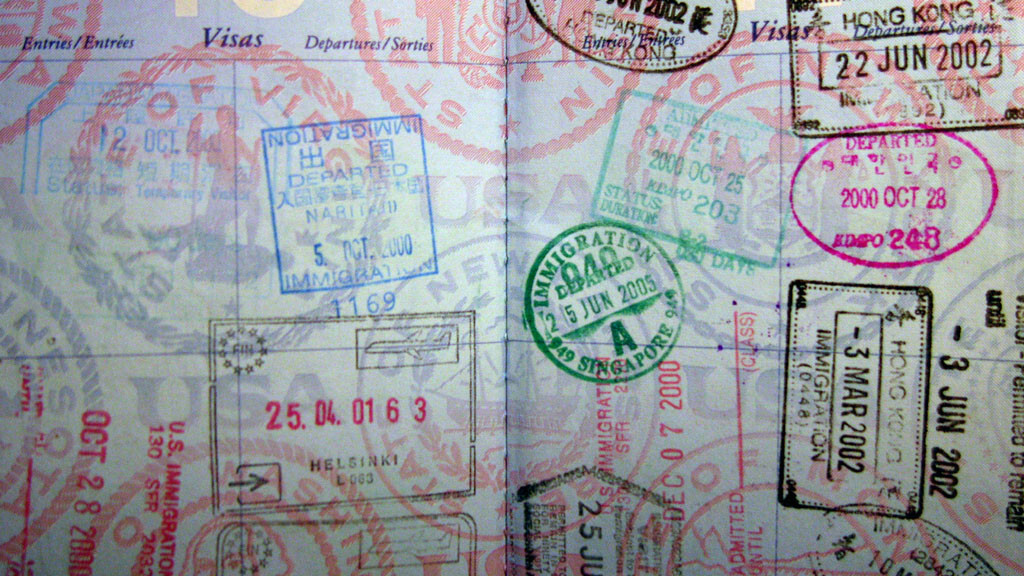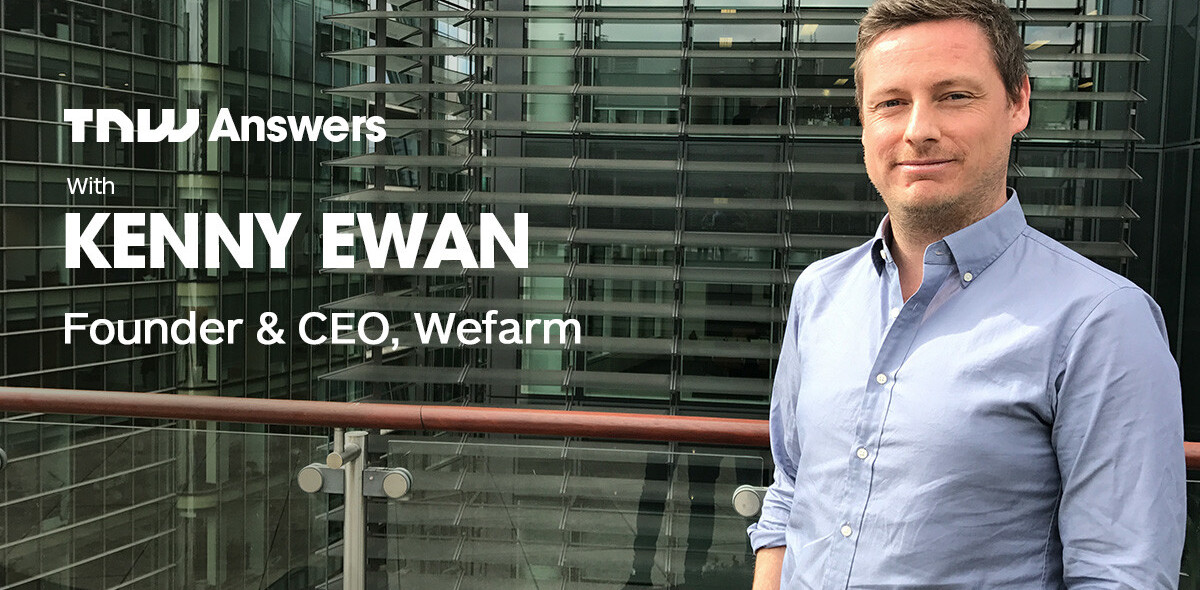
If you’ve watched President Obama’s speech on jobs yesterday evening, you know that employment is a real concern in the US, as much as it is in other Western countries. In fact, unemployment and the global economic crisis are some of the reasons why more and more Americans and Europeans are moving to Latin America, attracted by job opportunities in this growing market. Although their number in the startup scene is still fairly limited, a few of them managed to become key players and influencers in this thriving space. Here are some names you should definitely know:
Michael Nicklas
Michael Nicklas is one of the leading investors in Brazilian startups. Currently director of portfolio development at Rio-based VC firm Ideiasnet, he’s also an advisor to Latin American companies such as Quepasa.com. An American, Michael spent several years in São Paulo during his early childhood due to his father’s job. Yet, learning Portuguese vocabulary has proved to be one of his main challenges when he moved back to Brazil a few months ago. Indeed, his relative fluency means he hadn’t realized he didn’t have the business vocabulary he was going to need.
 Doing business was one of the key reasons why Michael decided less than a year ago to settle in Rio de Janeiro. Then a New-York based Internet professional, he had sensed around 2008 that the Brazilian market was going to boom; he had also noted that US investors were starting to show serious interest in the market.
Doing business was one of the key reasons why Michael decided less than a year ago to settle in Rio de Janeiro. Then a New-York based Internet professional, he had sensed around 2008 that the Brazilian market was going to boom; he had also noted that US investors were starting to show serious interest in the market.
Although he’s only been back for a few months, his experience has been extremely positive so far. Here’s his advice to wannabe expats in Brazil:
Speaking the language and having an appreciation for Brazilian culture certainly helps. Networks and relationships are important everywhere but even more so in Brazil. Foreigners who invest the time and energy can build lasting relationships which are the key to success in Brazilian business.
Oskar Hjertonsson
 Oskar Hjertonsson, as you may guess from his name, is a Swedish entrepreneur. Oskar is based in Santiago, Chile. Currently Groupon‘s General Manager for Latin America, he helped building out the daily deals website in the region. Indeed, Groupon entered the local market in June 2010 by acquiring Clandescuento.com, the daily discount site he had created a few months earlier. It wasn’t Oskar’s first company in Chile as he had already co-founded the classifieds website Needish in 2007.
Oskar Hjertonsson, as you may guess from his name, is a Swedish entrepreneur. Oskar is based in Santiago, Chile. Currently Groupon‘s General Manager for Latin America, he helped building out the daily deals website in the region. Indeed, Groupon entered the local market in June 2010 by acquiring Clandescuento.com, the daily discount site he had created a few months earlier. It wasn’t Oskar’s first company in Chile as he had already co-founded the classifieds website Needish in 2007.
Besides his role at Groupon, Oskar is also a private investor in startups. According to his AngelList profile, he “invests in 5 startups at US$25k a year”. One of these companies is the event planning service Welcu, the only Chilean company that participated in 500 Startups’ acceleration cycle this summer (see our previous story).
Simon Olson
 Don’t call Simon Olson an expat: since he has moved from the US to Brazil in 2002, he hasn’t thought of himself as a foreigner, but as a Brazilian. As he tells me, he “sees himself as an immigrant in the same tradition as the Italian, German, Japanese, and Portuguese settlers who emigrated here generations ago.”
Don’t call Simon Olson an expat: since he has moved from the US to Brazil in 2002, he hasn’t thought of himself as a foreigner, but as a Brazilian. As he tells me, he “sees himself as an immigrant in the same tradition as the Italian, German, Japanese, and Portuguese settlers who emigrated here generations ago.”
Regardless of nationality, Simon is one of the most influential personalities in the Brazilian tech world. While a partner at Belo Horizonte-based DFJ FIR Capital, Draper Fisher Jurvetson’s partner fund in Brazil, he played a pivotal role in the sale of portfolio company Akwan Information Technologies to Google in 2005. (Following its acquisition, Akwan has become Google’s R&D Center in Brazil.)
Simon now works for Google’s Latin America New Business Development team. Besides his role at Mountain View’s giant, he enjoys sharing his knowledge. A heavy contributor on Quora, he also penned a survival guide for companies on how to survive the economic downturn and gave a talk last year at Stanford University’s Graduate School of Business – a must-watch if you’re interested in venture capital and Brazil (click here for part 1 and part 2).
Alan Colmenares
 It’s naturally that Alan Colmenares chose Colombia when he decided to take an adventure abroad in 1995, after several years working as an Electrical Engineer for a Defense contractor and several Silicon Valley startups. After all, his parents were Colombian and he had learned Spanish at home. Then aged 31, he was offered a job at Compaq during his vacation and ended up staying for three more years. He then moved on to Mexico and Brazil, working for Intel Capital, before coming back to Colombia in 2002.
It’s naturally that Alan Colmenares chose Colombia when he decided to take an adventure abroad in 1995, after several years working as an Electrical Engineer for a Defense contractor and several Silicon Valley startups. After all, his parents were Colombian and he had learned Spanish at home. Then aged 31, he was offered a job at Compaq during his vacation and ended up staying for three more years. He then moved on to Mexico and Brazil, working for Intel Capital, before coming back to Colombia in 2002.
Despite his roots in Colombia, it doesn’t mean Alan didn’t have to adapt. Having spent all his life in the US, he wasn’t familiar with some aspects of the Colombian culture. For instance, he didn’t know that the business environment was more formal than in the US, and that going straight to the point wasn’t necessarily welcome. He also had to get used to the fact that things take more time in Colombia, compared to the American efficiency-focused culture.
However, he must have learned quick as he’s now a key player in the local startup ecosystem and one of its main advocates. Besides writing for different media outlets and for his blog, Tropical Gringo, he’s recently launched an accelerator called Tayrona Ventures (see our previous story). He was also instrumental in getting the Founder Institute to launch operations in Colombia.
Robert Wilson
Robert Wilson‘s relationship with Brazil started with a cliché: he came to Rio de Janeiro for the Carnival… and ended up staying. However, this is only an anecdote in a story that spans two decades, as Robert is now a key player in the private equity sector.
After meeting his Brazilian wife (and mother to his two kids), Robert had moved back with his family to New York, where he got involved with private equity, working for Citibank. Citibank then sent him to Brazil in 1997 to create a private equity fund, the CVC fund, where he worked until 2009.
Robert then moved on to his own projects, Ouranos L Ventures, which he launched in 2010, and the recently born Tropical Angels. Modeled after Y Combinator, Tropical Angels is a startup accelerator whose first cycle, Startup Rio, started in August. Indeed, Robert is a strong advocate of Rio as a destination for startups.
Fluent in Portuguese, Robert also masters the Brazilian culture and its nuances. As he puts it, there are two ways to embrace living in a different country:
There is the total immersion route, where you literally have no or certainly very few social or business relations with people from you home country, and then there is the multinational or home country approach, where you maintain strong ties to your home country both socially and in business and thereby limit the degree to which you involve yourself in the local culture. I chose the former.
David Geisen

David Geisen may be German, but he’s perfectly fluent in Spanish. If you want to check by yourself, you can listen to his interview in Spanish for the Mexican podcast Emprende.la. David is the founder and CEO of the fast-growing Mexican platform ClickOnero, which belongs to the Swiss multinational Group Buying Global AG. The group owns several group buying websites across the world, including the ClickOn brand.
‘ClickOnero’ is the name the Mexican branch that David co-founded about one year ago. Before moving to Mexico, David had studied in Germany, Spain and the US. While a student, he developed online stores for German clients. After graduating, he went on to work in investment banking at Goldman Sachs in London, but was still keen to launch his own company in the e-commerce field.
Married to a Mexican, he was already familiar with the Mexican culture. However, choosing Mexico as a destination was also a professional choice, since group buying was booming all over the world but not yet in Mexico at the time. ClickOnero, which recently celebrated its first birthday, was a pioneer in the field and now boasts 1.5 million subscribers.
Mark Hillary
 Mark Hillary married a Brazilian, but anyone thinking he’s in Brazil for personal reasons would get him wrong. Instead, Mark’s main motivation to move to Brazil from the UK is the tremendous opportunity he sees in the Brazilian IT market. It’s in the UK that he met his wife Angelica Mari while she was working as an Associate Editor at Computer Weekly. Yet, they both acknowledged that “Brazil was the place to be”. They also knew her Brazilian nationality meant they could move to her home country fairly easily.
Mark Hillary married a Brazilian, but anyone thinking he’s in Brazil for personal reasons would get him wrong. Instead, Mark’s main motivation to move to Brazil from the UK is the tremendous opportunity he sees in the Brazilian IT market. It’s in the UK that he met his wife Angelica Mari while she was working as an Associate Editor at Computer Weekly. Yet, they both acknowledged that “Brazil was the place to be”. They also knew her Brazilian nationality meant they could move to her home country fairly easily.
This is how they both landed in São Paulo earlier this year to launch their own project, called IT Decisions. Targeted at IT decision markers, their business has two sides. One is its English-language website, focusing on interviews, analysis and comments. The other one is research, to which the online magazine is actually a showcase. Mark calls their niche ‘research on steroids’. Using its community of IT buyers across different industries, IT Decisions is able to ask a very specific question to these professionals each Monday and to deliver a full report on the topic by Friday, in English and Portuguese.
Even if Mark was well documented before he moved to Brazil, the country still held surprises. For instance, he noticed how Brazilian entrepreneurs would still launch a startup in a seemingly saturated niche, such as group buying. Knowing there will still be a handful winners, some may take a chance with a different angle, where Americans and Europeans would likely abstain altogether. On the other hand, Mark also noticed how most Brazilians dreamt of working in the public sector, although things are starting to change.
Indeed, Brazil has a vibrant startup community, and money is starting to flow. Mark sees the country as one of the most exciting tech scenes in the world, including on the corporate side, which he knows very well. “It feels like India around the millenium”, he says.
Eric Northam
 Eric Northam can compare Buenos Aires to many other cities; before settling in Argentina in 2007, this American entrepreneur travelled around the world for two years, visiting 26 countries. He’s been living in the Argentine capital since then, running his online business EasyBroker from Buenos Aires. EasyBroker makes real estate software; it was born from Eric’s experience as a world traveller, when he realized that real estate agents in many countries needed help to run their businesses in a more efficient way.
Eric Northam can compare Buenos Aires to many other cities; before settling in Argentina in 2007, this American entrepreneur travelled around the world for two years, visiting 26 countries. He’s been living in the Argentine capital since then, running his online business EasyBroker from Buenos Aires. EasyBroker makes real estate software; it was born from Eric’s experience as a world traveller, when he realized that real estate agents in many countries needed help to run their businesses in a more efficient way.
Eric has built strong ties with Argentina and its culture. He started dancing tango about two years ago and confesses “he’s become a bit addicted lately”. He’s also very involved in building a startup ecosystem in Buenos Aires. He has organized several networking events on his own, including the Start-Ups Buenos Aires After Office meet-ups which take place on a semi-regular basis.
Eric acknowledges that the startup and tech environment has expanded a lot since his first visit in 2005. Still, running a business in Buenos Aires can be fairly tough, as Eric has learned. It took him until January this year for EasyBroker to break even. Inflation is rampant and bringing money into the country is complicated. Overall, the system lacks transparency, leading to many workarounds. These are some of the downsides of doing business in Argentina. Yet, the country also has many assets to offer, and quality of life is one of them. As Eric summarizes it: “Buenos Aires is a great city to live in”.
Joshua Kempf

Joshua Kempf was an investment banker at Goldman Sachs in New York when he decided to sign up for a one-year program at the London School Of Economics (LSE). In between, he knew there would be a three-month gap, and he decided to make the most out of it. Already fluent in Spanish thanks to long stays in experience in Chile and Argentina, he knew Portuguese was also needed to do business with the region, as Brazil’s capital market is growing fast.
Although learning Portuguese takes the most of his time, it’s his side activities that are of interest here. Already involved with Venture Capital in the US, he decided to start a blog while in Brazil, Brazil Venture Capital. Thanks to his outlet, he met “all movers and shakers in less than two months”. His friend and Goldman Sachs alumnus Felipe Mansano, a co-founding manager at Beleza Na Web, had introduced Joshua to relevant startups when he arrived. He has also received help from other key people in the local startup community, such as Diego Remus from the blog Startupi and Diego Gomes, the founder of the blog Webholic who recently moved on to create a startup called EverWrite (see our story).
Overall, Joshua was impressed at how easily he got to meet influencers. Getting a meeting is definitely easier in Brazil, he says, and the local startup community was very helpful. Yet, he still had to get used to the informality of interaction that prevails in Brazil, even compared to American standards.
Joshua is now giving back: he’s been approached by an American fund interested in investing in Brazil, and spend a fair share of his day making introductions. Although he’s now heading to London in less than two weeks, he plans to keep on doing so. He will also keep on writing on his blog thanks to his Brazilian connections, and hopes to be back in the region at some point in the near term.
Are you a foreigner in Latin America? Let us know about your own experience in the comments.
Get the TNW newsletter
Get the most important tech news in your inbox each week.



